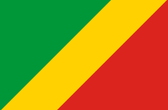
Call 0330 880 3600 Calls may be monitored or recorded. Opening Times.
- TRAVEL INSURANCE
- COVID-19 COVER
- More Options
- Help & Advice
- Existing Customers

Call 0330 880 3600 Calls may be monitored or recorded. Opening Times.

Need help?
UK Customer Services0330 880 3600*
Open Monday to Friday 9:00am to 6pm, Saturday 8:30am to 4pm and closed Sundays.
*Calls are recorded for training and quality purposes.
Other Guides

Official name: Republic of the Congo
Capital city: Brazzaville
Languages spoken: French, Lingala, Kituba, indigenous languages
Population: Around 6 million
Currency: Central African CFA franc (XAF)
Time zone: GMT+1
Driving side: Right
Climate: Equatorial climate with hot, humid conditions year-round and two main rainy seasons
The Republic of the Congo, not to be confused with its larger neighbour the Democratic Republic of the Congo, is a Central African country rich in natural resources and dense rainforests. Brazzaville sits on the Congo River directly opposite Kinshasa, making the two capitals the closest pair in the world. While the country has enjoyed more stability than its neighbour, political tensions and sporadic unrest still occur, and travellers are advised to stay informed on local conditions.
Much of the Republic of the Congo is covered by tropical rainforest, with the Congo Basin dominating the landscape. The country also has savannas, plateaus, and major rivers, including the Congo and the Ubangi. To the southwest lies a short Atlantic coastline, centred around the port city of Pointe-Noire.
Maya-Maya International Airport in Brazzaville and Agostinho-Neto International Airport in Pointe-Noire are the main entry points for international visitors. Domestic flights link the two cities, while roads outside urban areas are often in poor condition, especially during the rainy seasons. Taxis are common in cities, though fares should be agreed in advance. River transport remains important, with ferries and boats operating along the Congo River.
UK nationals require a visa to enter the Republic of the Congo, which should be obtained in advance from the nearest embassy or consulate. Visitors are usually asked to show proof of accommodation, a return ticket, and evidence of sufficient funds. The British Embassy in Brazzaville is limited in the services it provides, and many countries maintain their main representation in Kinshasa, across the river in the DRC.
The Central African CFA franc (XAF), shared with several neighbouring countries, is pegged to the euro. ATMs are available in larger cities but are unreliable, so carrying some cash is recommended. Credit cards are accepted in a limited number of hotels and restaurants in Brazzaville and Pointe-Noire. Everyday expenses are relatively low compared with European standards.
Healthcare is very limited, with hospitals and clinics under-equipped outside major cities. Travellers should have comprehensive medical insurance, including cover for evacuation. Malaria is a serious risk throughout the country, and yellow fever vaccination is mandatory for entry. Bottled or boiled water is strongly recommended, as tap water is unsafe.